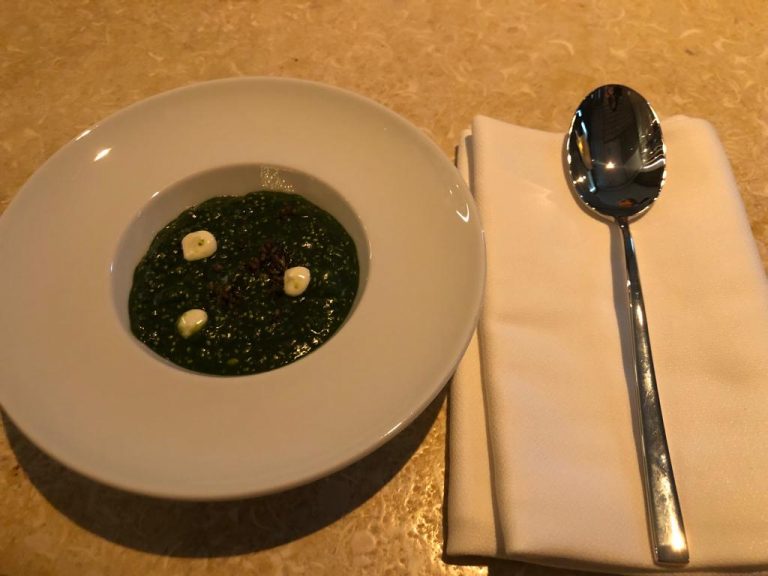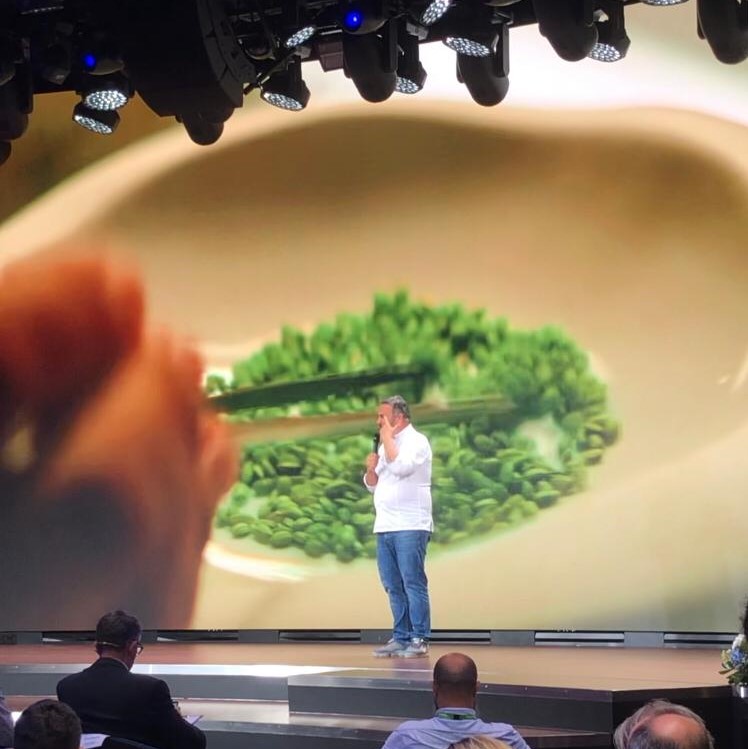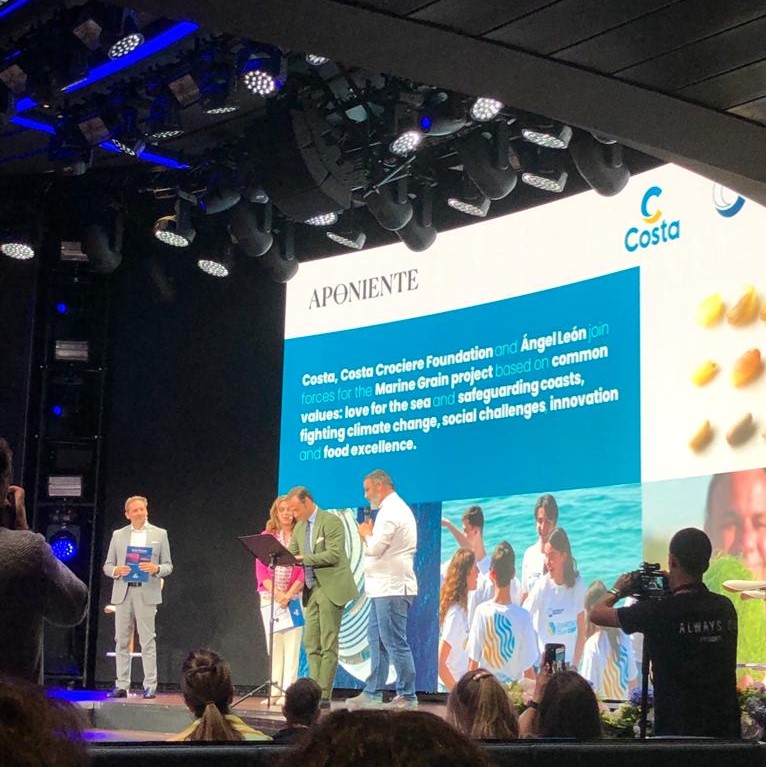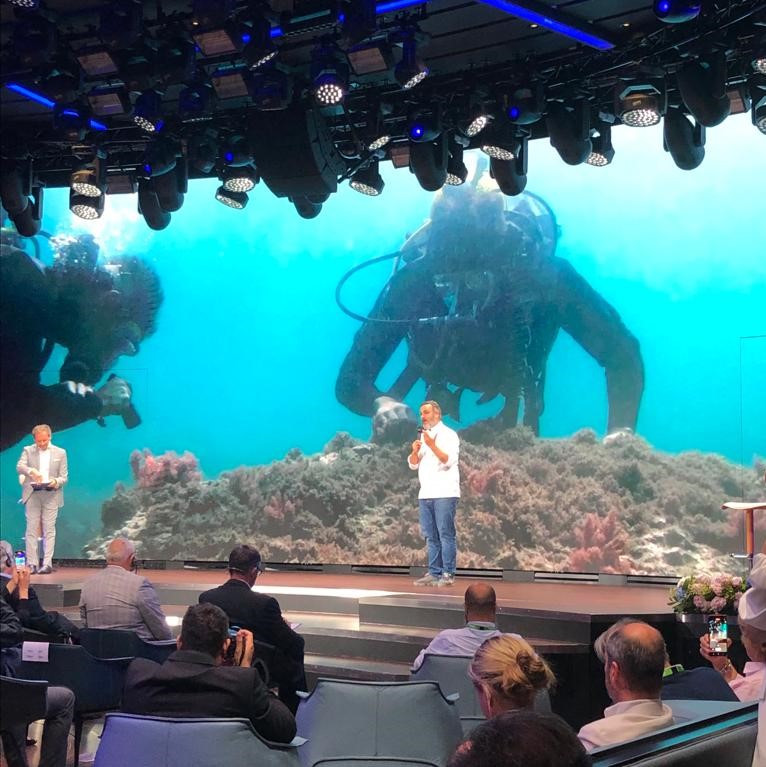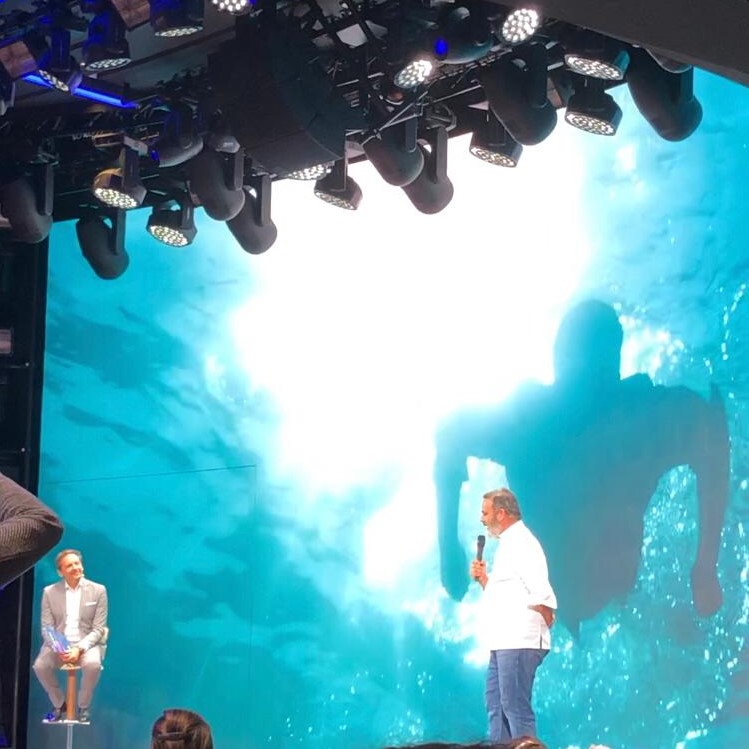Costa Cruises and Ángel León: “Food of the Future”
Love for the sea and excellent gastronomy are at the basis of the meeting between Ángel León and Costa Cruises. The partnership that has already begun with Costa includes dishes created by the Spanish chef on board the ships, which we can both find as a destination dish and, above all, with a set menu at the Archipelago restaurant, but which now extends to a pioneering project at world level: the cultivation of the ‘cereal of the sea’, which Ángel León and the Aponiente team are experimenting with in the bay of Cadiz, Spain.
It is a marine plant that benefits the ecosystem by enriching its biodiversity, contributes to mitigating climate change by absorbing and storing large quantities of carbon, and above all, is capable of producing, from its seeds, a ‘superfood’ with great nutritional properties, which could become the ‘food of the future‘.
Sea Cereal
Angel Leon
Costa and Ángel León’s objective is to further promote the project in order to build new opportunities to ‘scale it up’ and expand it to new coastal areas in Europe, and even outside Europe. Moreover, thanks to the support of the Costa Cruises Foundation, the research & development activity on the “sea cereal” can be significantly strengthened, in order to extend the cultivated area of the sea garden in the Bay of Cadiz, thereby increasing the production of the cereal.
Angel Leon & Costa
In 2017, Aponiente launched a globally unique project, creating a real cultivation of an indigenous species of sea plant, the ‘zostera marina‘, in a 3,000 m2 marine garden in the Bay of Cadiz. This contributes to the preservation of marine biodiversity and is an effective ally against climate change, but the real treasure of the zostera marina is its seed, renamed by Ángel León as ‘sea cereal’ or ‘sea wheat’, which can be consumed as it is, or processed into flour and related products such as bread and pasta.
It contains important nutritional properties: gluten-free, rich in omega 6 and 9, it has more high-quality protein (13%), carbohydrates (82%, of which about 50% starch) and less than 2% (vegetable) fats than land-based cereals.
Angel Leon
Moreover, its cultivation is sustainable, as it can grow without fresh water, fertilisers or pesticides, and can be a strategic economic resource for disadvantaged areas, as it has a potentially higher profitability than other land-based cereals.
“The sea is the greatest resource we have in nature. It is an idea that Costa and the Costa Cruises Foundation share with us, which led us to collaborate on this project,” – Ángel León stated. “Thanks to their support we will have the opportunity to further grow our initiative, in the hope of being able to provide concrete help to those populations that are facing livelihood or economic difficulties, while also contributing to the protection of the sea. I have always believed that this initial dream could turn into a reality and with the arrival of our new partners, we will really take a leap forward”.
Angel Leon
Rossella Carrara, Vice President Corporate Relations & Sustainability of the Costa Group said: “We already had a partnership in place with Ángel León and shared his love for the sea. It seemed natural to us to strengthen our synergy by supporting a project that fits in perfectly with the Costa Cruises Foundation’s areas of intervention and with Costa Cruises‘ values, because it brings together several elements that we too have been committed to for some time: the protection and preservation of the marine and coastal ecosystem; the research and development of innovative solutions linked to the fight against climate change; the long-term vision with a view to fully integrating sustainability into the product we offer our guests; and the focus on social aspects and support for the communities that host our ships”.
Don’t miss out on more Costa Cruises updates, news and reviews in Cruising Journal with photos, videos and cruises on offer!

